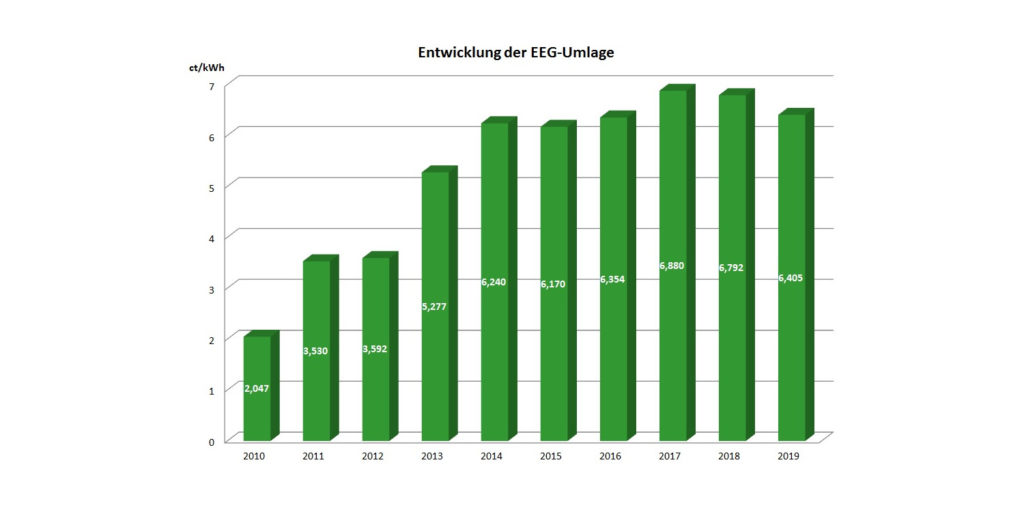From pv magazine Germany
In the coming year, the levy, which finances all of Germany’s renewable energy incentives programs under the country’s renewable energy law (EEG), will drop to €0.06405 cents per kWh. This is almost 6% less than in 2018 and the second reduction in a row, the German Federal Network Agency (Bundesnetzagentur) announced on Monday.
On October 15 each year, the German transmission system operators must determine the level of the EEG levy for the following year, on the basis of expert reports. The reports were provided this year by the University of Duisburg-Essen and the Fraunhofer ISI.
The Bundesnetzagentur reports that since 2014, the EEG levy has remained stable, even though the volume of electricity subsidized by the EEG has risen by 50% during this period. On the other hand, several reforms have been enacted, in order to prevent the EEG from rising in recent years.
The Federal Network Agency cites the transition from FITs to tenders as a factor contributing to the reduction of the levy for 2019, but also the significantly higher spot market prices. As a third reason for the planned reduction, the authority points out the high surplus on the EEG account, which at the end of September was €3.65 billion.
In order to determine the level of the EEG levy, the transmission system operators must also take into account the expected expansion of PV and wind power for the coming year. They expect a total of 5.75 GW of newly installed capacity, of which almost 2.7 GW will be from PV, which is now growing at almost the same pace as wind power on land and at sea together, according to the data of the transmission system operators.
In total, electricity generation from renewable energies is expected to amount to 217 terawatt hours in the coming year.
The total payment of all power generators under the umbrella of the EEG law in Germany is estimated by the transmission system operators to be €33.1 billion for 2019. This is expected to be offset by revenues on the power market of €7.8 billion. As a liquidity reserve, which should prevent the EEG account from slipping into negative territory, the transmission system operators are expecting 6% as in the previous year.
This content is protected by copyright and may not be reused. If you want to cooperate with us and would like to reuse some of our content, please contact: editors@pv-magazine.com.




By submitting this form you agree to pv magazine using your data for the purposes of publishing your comment.
Your personal data will only be disclosed or otherwise transmitted to third parties for the purposes of spam filtering or if this is necessary for technical maintenance of the website. Any other transfer to third parties will not take place unless this is justified on the basis of applicable data protection regulations or if pv magazine is legally obliged to do so.
You may revoke this consent at any time with effect for the future, in which case your personal data will be deleted immediately. Otherwise, your data will be deleted if pv magazine has processed your request or the purpose of data storage is fulfilled.
Further information on data privacy can be found in our Data Protection Policy.